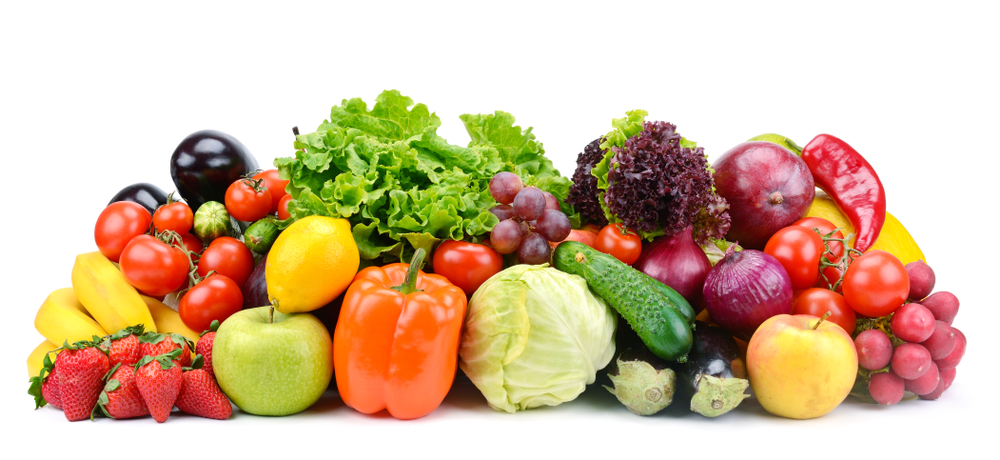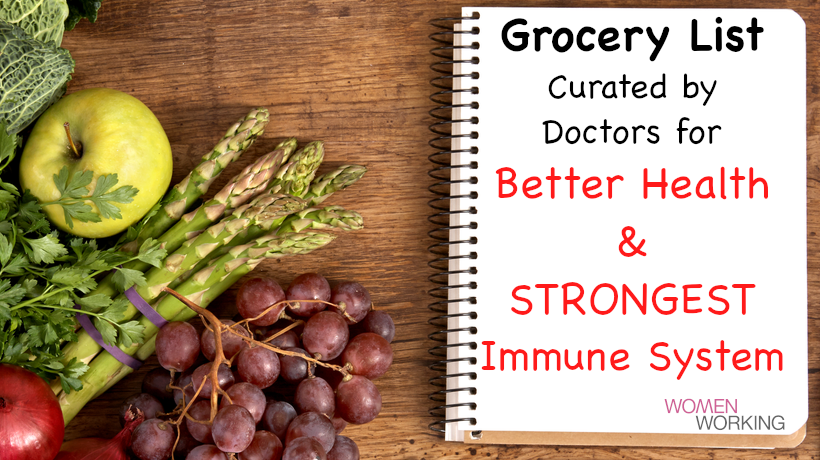Want to boost your immune system to its full potential and eat healthier, but don’t know where to start? We are providing you a list that you can simply print out and bring to the grocery store, that has been curated by doctors. These foods are filled with nutrients, healthy fats, omega 3s, vitamins, and minerals you need for not only a balanced diet, but a strong immune system to fight off future illnesses. Dr. Mike Roizen, chief wellness officer emeritus of the Cleveland Clinic, and Dr. Michael Crupain, the head of The Dr. Oz Show medical unit share why each food choice on this list is crucial to help build up a healthy immune system.
*(Just copy and paste the lists below for an easy, printable grocery list. Don’t forget to take into consideration any intolerances, allergies, and preferences!)

Produce
- Mushrooms
- Broccoli
- Leafy Greens
- Red Bell Peppers
- Blueberries
- Squash
- Pomegranate Seeds
- Shallot
- Garlic
Dr. Roizen reveals that red bell peppers contain more vitamin C than an orange. “A red pepper is a mature version of a green pepper… and as they age, their nutritional qualities also change.” Vitamin C is essential because our bodies don’t make it. According to Dr. Li, M.D., mushrooms increase the secretion of an antibody called IgA, present in your mucous membranes and saliva. So, when mushrooms and broccoli are paired together they become a respiratory power duo. Riozen also explains that leafy greens are converted to nitric oxide. “Nitric oxide is essential for your overall health because it allows blood nutrients and oxygen to travel all over your body. Plus, it also helps to lower blood pressure — all important things to keep your immunity up and Covid out and away.”

Meat & Seafood
- Tuna
- Mackerel
- Salmon
- Beef
- Oysters
- Pork
- Lamb
Dr. Crupain recommends both wild-caught and farmed salmon at the supermarket for a healthy dose of Vitamin D. Research suggests that people who are vitamin D deficient are at an increased risk of contracting COVID-19, as well as they may experience poor outcomes when they have the virus.

Dairy
- Cheddar Cheese
- Brie
- Gouda
- Fontina
- Monterey Cheese
- Whole Egg
- Egg Yolk
Cheese is a great source of vitamin D. Dr. Crupain recommends gouda, cheddar, and brie. “It’s important to eat in MODERATION, but having a few bites of cheese can give you a little extra vitamin D, approximately 2% of your daily value during your day,” he says. “It’s a good snack that will also keep you full.”

Dry Goods
- Almonds
- Walnuts
- Hazelnuts
- Cashews
- Pecans
- Legumes
- Hemp
- Sesame Seeds
- Flaxseed
- Pine nuts
- Peanuts
- Quinoa
- Rice
- Oats
- Sourdough Bread
- Farro
Oils & Juices
- Avocado Oil
- Olive Oil
- Pomegranate Juice
- Tart Cherry Juice

Supplements
- Cod Oil
- Vitamin C
- Vitamin D
- Zinc
Jillian Kubala, M.D., says that zinc is considered an essential nutrient, meaning that your body can’t produce or store it. In fact, zinc is the second-most-abundant trace mineral in your body — after iron — and is present in every cell. Zinc is essential for cell growth and division, immune function, enzyme reactions, DNA synthesis, and protein production.
Sources:



